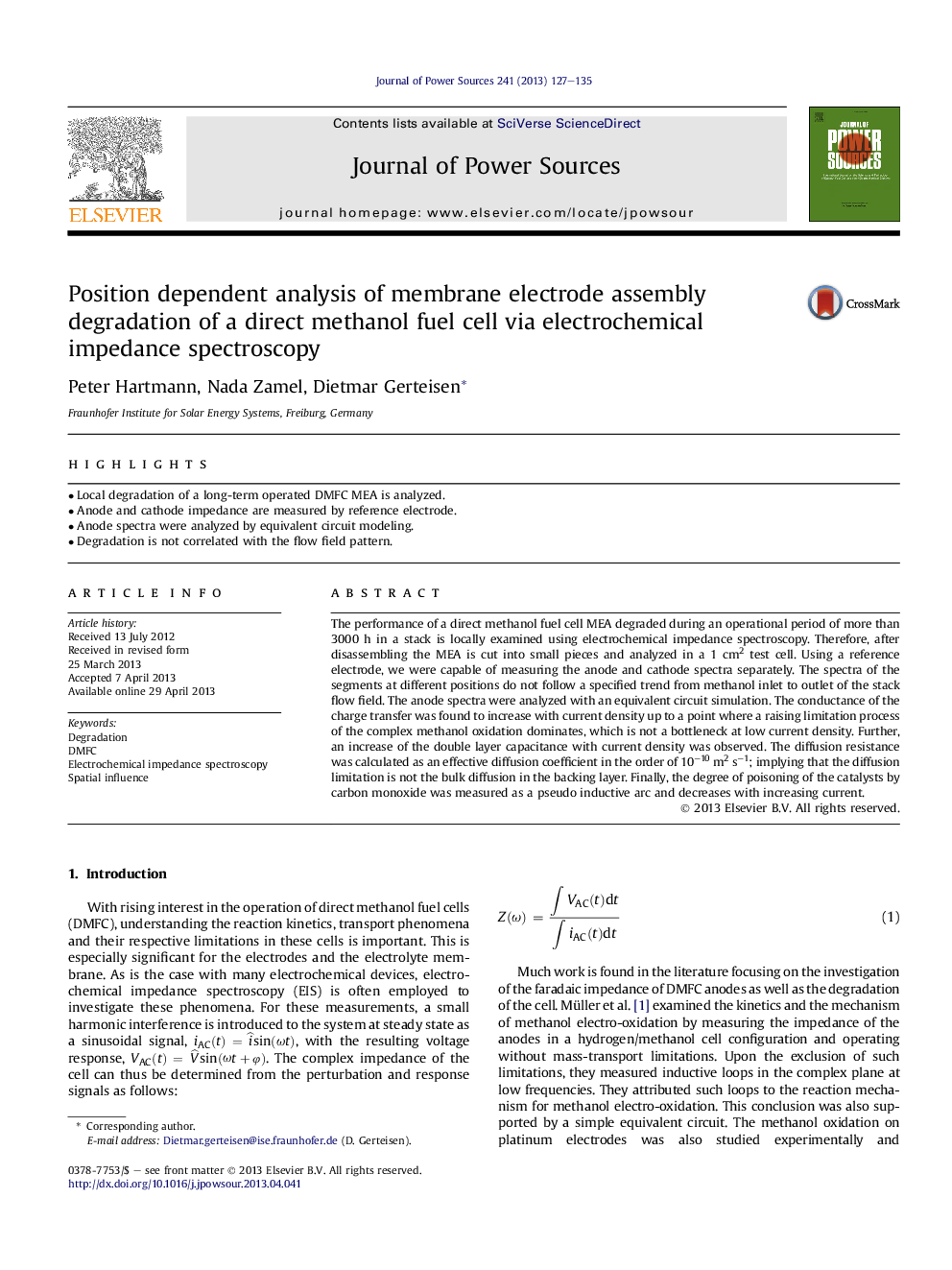| Article ID | Journal | Published Year | Pages | File Type |
|---|---|---|---|---|
| 7739509 | Journal of Power Sources | 2013 | 9 Pages |
Abstract
The performance of a direct methanol fuel cell MEA degraded during an operational period of more than 3000Â h in a stack is locally examined using electrochemical impedance spectroscopy. Therefore, after disassembling the MEA is cut into small pieces and analyzed in a 1Â cm2 test cell. Using a reference electrode, we were capable of measuring the anode and cathode spectra separately. The spectra of the segments at different positions do not follow a specified trend from methanol inlet to outlet of the stack flow field. The anode spectra were analyzed with an equivalent circuit simulation. The conductance of the charge transfer was found to increase with current density up to a point where a raising limitation process of the complex methanol oxidation dominates, which is not a bottleneck at low current density. Further, an increase of the double layer capacitance with current density was observed. The diffusion resistance was calculated as an effective diffusion coefficient in the order of 10â10Â m2Â sâ1; implying that the diffusion limitation is not the bulk diffusion in the backing layer. Finally, the degree of poisoning of the catalysts by carbon monoxide was measured as a pseudo inductive arc and decreases with increasing current.
Related Topics
Physical Sciences and Engineering
Chemistry
Electrochemistry
Authors
Peter Hartmann, Nada Zamel, Dietmar Gerteisen,
